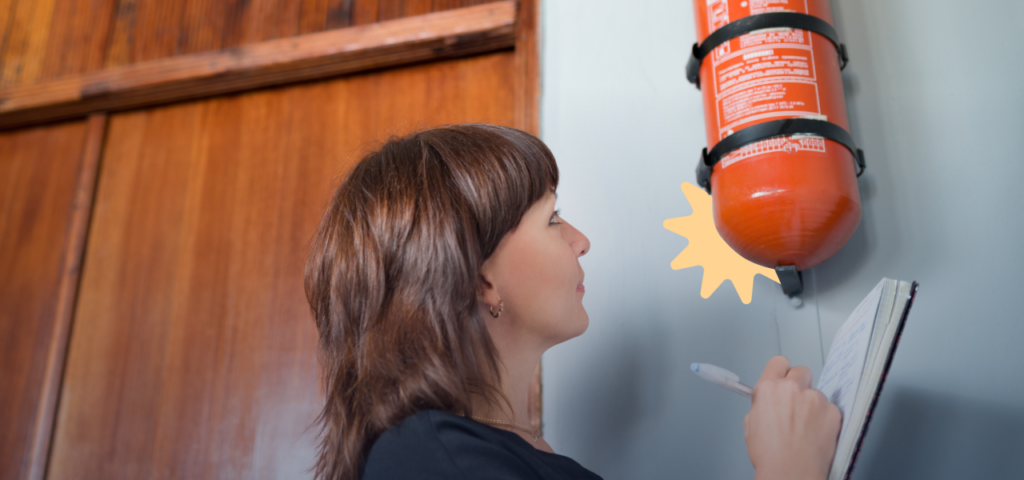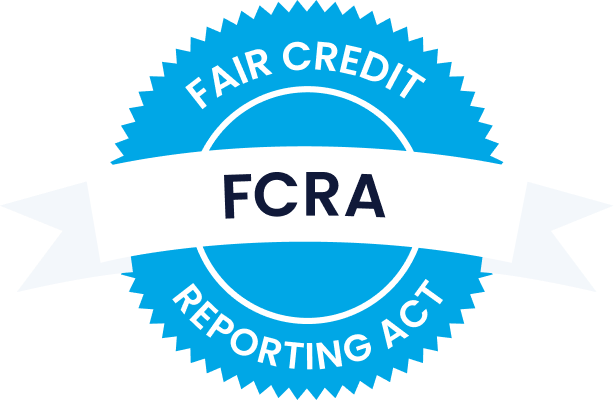Fire insurance is one of the most critical types of protection to get for your rental property. It doesn’t take much for a fire to start. Maybe your tenant leaves a boiling pot unattended or fails to put out a cigarette butt. The outcome can be complete devastation of your property and everything in it.
Fire insurance coverage compensates you for financial losses and damages after a fire. But not all plans offer the same level of protection, so it’s crucial to know how to evaluate your options to choose one that best meets your needs.
Read on to explore the ins and outs of fire insurance for rental properties, including the coverages offered and what to consider when shopping for a policy.
What is fire insurance coverage for rental properties?
Fire insurance pays for the cost to repair or rebuild your rental should it suffer fire damage. It also covers you for personal possessions lost in the fire, expenses arising from liability, and other costs. The extent of coverage will vary depending on how comprehensive your policy is.
Fire insurance is typically a component of landlord insurance, which protects your rental property against a wide range of risks. Homeowner’s insurance also offers protection from fire damage, but only for a property that is your primary residence.
You can also purchase fire insurance as a stand-alone policy. However, the coverage is usually quite limited compared to what a well-rounded landlord insurance package offers.
Fire insurance coverage applies to fires that start from inside or outside the property (there are certain exceptions which we’ll describe later). The cause of the fire is irrelevant for the most part, assuming it’s accidental and the result of an everyday risk. These include:
- Faulty appliances
- Gas leaks
- Candles
- Faulty electrical wiring
- Lightning strikes
- Kitchen fire
- Smoke damage
- Fire spreading from a neighbour’s property
A fire insurance policy provides financial compensation up to a specified dollar amount. In general, the higher the limit and the more extensive the scope of coverage, the more expensive the policy. As with other types of insurance, you’ll have to pay a deductible when filing a claim.
What does fire insurance cover?
Fire insurance geared towards rentals protects you against losses you’d normally have to pay out of pocket. In general, you can expect coverage for the following:
Building. The most critical aspect of your policy protects your building, including any attached structures, such as a patio. If it is damaged, your insurance provider will cover the cost of restoring it to its original condition.
Detached structures. This section covers structures on your property that are permanently installed but separate from your building. Some examples are a garage, shed, fence, gazebo, and pool.
Personal contents. Lost or damaged items inside your rental all fall within your fire insurance coverage. Your insurance provider will pay up to a specified dollar amount to replace them.
Liability. If a fire that affects your rental causes harm to another person or their property, you could face hefty legal fees and settlement or medical costs. The liability component of your policy will reimburse you for these expenses.
Lost rental income. Following a fire, your tenant may need to move out due to the extent of the damages. If that’s the case, this part of the policy will cover the rental income you forfeit up to a predetermined limit and time period, while you rebuild your property. Your insurance provider will reimburse you based on fair rental value rather than what you charge your tenant. In addition, your insurance coverage will stop once your property is livable again, whether your tenant chooses to move back in or not.
Tenant relocation. This part of your policy will pay your tenant’s relocation expenses if they can’t live on your property following a fire.
As noted previously, the extent of coverages will vary based on how broad of a policy you choose. Ensure you review fire insurance policies carefully to understand what is and isn’t covered, including the cap on payouts following a claim.
What fire insurance doesn’t cover
While fire insurance will offer you and your property great protection, there are instances when it won’t bail you out. These situations include the following:
Arson and other criminal acts. Fires deliberately set or resulting from illegal activities on your premises don’t qualify for coverage.
Fraudulent claims. If you provide misleading information on your claim, such as overstating the extent of the damage or lying about the fire’s origin, your insurance provider has the right to deny you coverage.
Failure to meet local building and fire codes. If you’ve failed to take appropriate steps to ensure your property is up to code, your insurance company can deny a claim related to a fire that breaks out.
Extended vacancy. Fire insurance coverage remains intact only if someone occupies the premises as a full-time resident. In addition, if your rental remains vacant for an extended period (typically 30 days) during which a fire destroys it, your insurance provider can deny your claim.
Questions to ask when buying fire insurance coverage
Given that the coverage level of fire insurance varies, it’s worth assessing your needs and preferences before you select your ideal policy. Here are some things to consider before purchasing fire insurance:
You can get fire insurance coverage through a landlord insurance plan or a stand-alone policy.
Stand-alone fire insurance, not surprisingly, is geared only towards fire-related risks. That means it won’t do you any good if a frozen pipe in your rental bursts and causes a massive flood or vandals break in. In addition, it may exclude certain types of coverages, such as those for personal belongings, and it may offer lower payouts for claims.
However, a stand-alone fire policy is less expensive than all-risk insurance, which covers a broader range of risks.
The benefit of landlord insurance is that it offers protection against many types of risks, in addition to those related to fires. These all-encompassing insurance plans typically also have higher payouts than a stand-alone policy. On the flip side, a standard landlord insurance plan charges a higher monthly premium.
In general, most landlords and rental property owners are better off getting fire insurance coverage as part of a diverse landlord insurance plan.
Suppose your rental property contains valuable belongings or equipment. In that case, you may need additional coverage for these items. This coverage is known as “listed property.”
While your insurance provider will reimburse you for possessions ruined by smoke and fire, there’s always a limit to how much you’re eligible to receive after filing a claim.
To decide if standard coverage is right for you, list the possessions you want to be replaced in the event of a fire and tally up their value. You’ll have to top up your insurance with extra coverage if there’s a wide gap.
An insurance provider will use one of two methods to calculate the amount required to rebuild a property following a fire: replacement cost or actual cash value (ACV). Replacement cost is the total amount needed to restore your property to its prior condition without including depreciation. ACV is the replacement value minus depreciation.
Your insurance provider’s method will dictate the payout size when you file a claim. It will also determine your monthly premium. A policy that provides compensation based on AVC is generally more affordable but offers lower payouts. On the other hand, one based on replacement cost will demand a higher premium, but you’ll likely receive a more generous sum of money in the event of a fire.
Most insurance plans include coverage for wildfires, but even then, it’s likely to be quite limited. The reason is that insurance companies view wildfires (plus other natural disasters like earthquakes) as extraordinary events and treat them as a separate risk category. Therefore, you should consider supplementing your existing policy with wildfire insurance to have adequate protection.
Fire safety tips
Fire insurance coverage will give you peace of mind knowing you’re protected should tragedy strike. However, it’s always wise to take some common-sense precautions to prevent a fire in the first place. Here are some tips for minimizing the risk of a fire breaking out on your property:
- Install smoke detectors and check the batteries twice a year to ensure they’re working properly.
- Keep an A-B-C fire extinguisher on site, preferably in the kitchen, where a fire is likely to start.
- Store flammable and hazardous materials in well-ventilated areas and away from sources that can ignite them.
- Ensure your circuit breakers and other electrical connections are functioning correctly. Have an electrician conduct an inspection periodically.
- Clean your furnace frequently.
- Keep your clothes dryer free from lint.
- Implement a no-indoor smoking policy for tenants.
- Keep your stove free from grease and grime.
- Avoid overloading outlets.
- Maintain the outside of your building by regularly removing leaves, branches, and other debris from your deck and outside walls.
- Frequently inspect and clean your chimney.
As a landlord, you’re responsible for these preventative measures, but you can still ask your tenant to help with simple tasks like changing a smoke detector’s batteries.
Our final thoughts
A fire can be more destructive than other risks you face as a landlord, such as vandalism, hail, and strong winds. It’s also more likely to be the culprit that wipes out your rental completely, resulting in massive out-of-pocket expenses. For these reasons, getting fire insurance coverage is a no-brainer, whether through a stand-alone policy or as part of a broader insurance plan.
If you have landlord insurance, you likely already have adequate protection from fires, so you can rest easy for the most part. Still, reviewing your policy to understand your coverage areas, insurance payout limits, and exclusions is vital. Depending on the level of protection you need, you may have to upgrade your policy or buy additional coverage, such as wildfire insurance.





